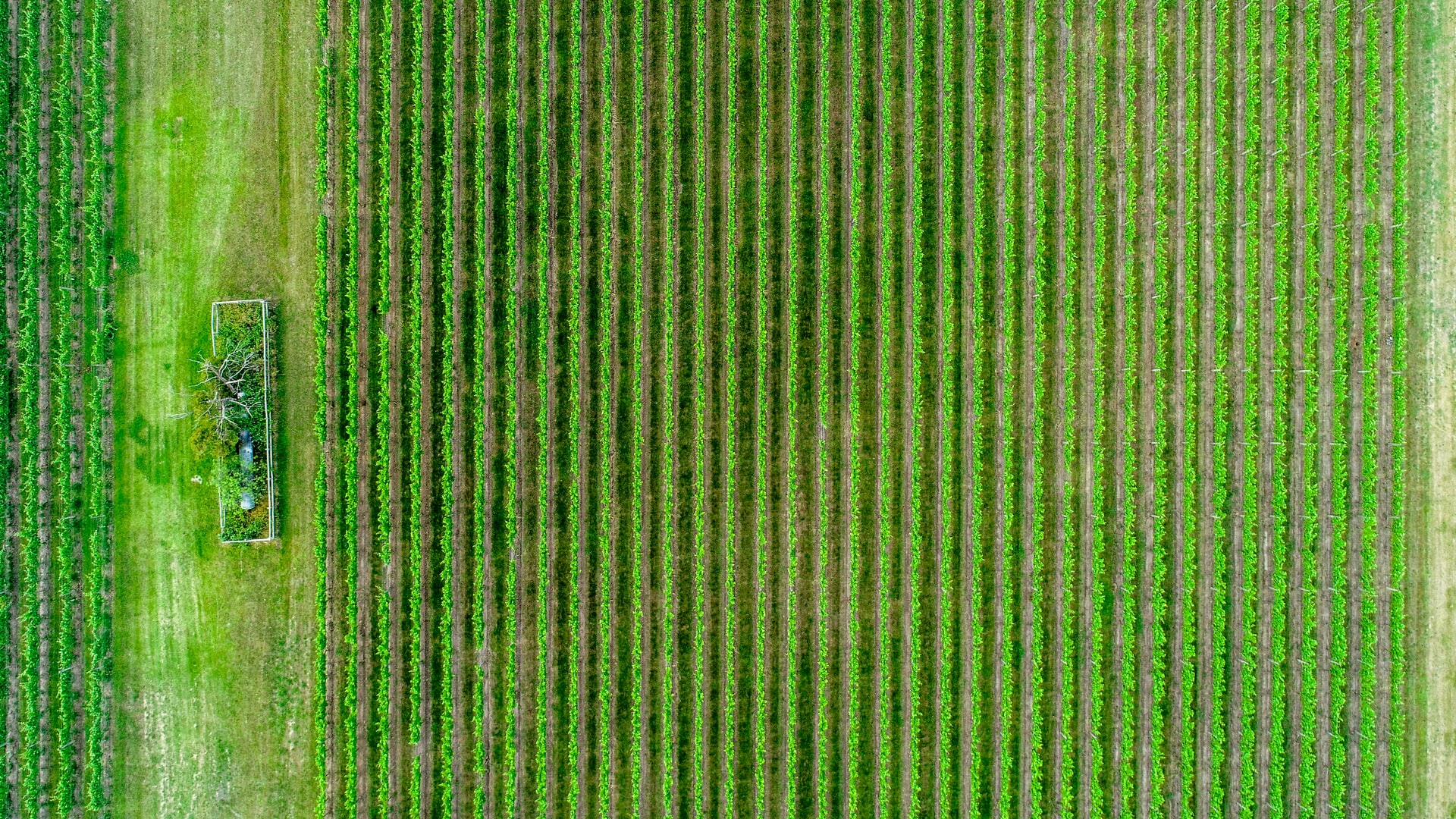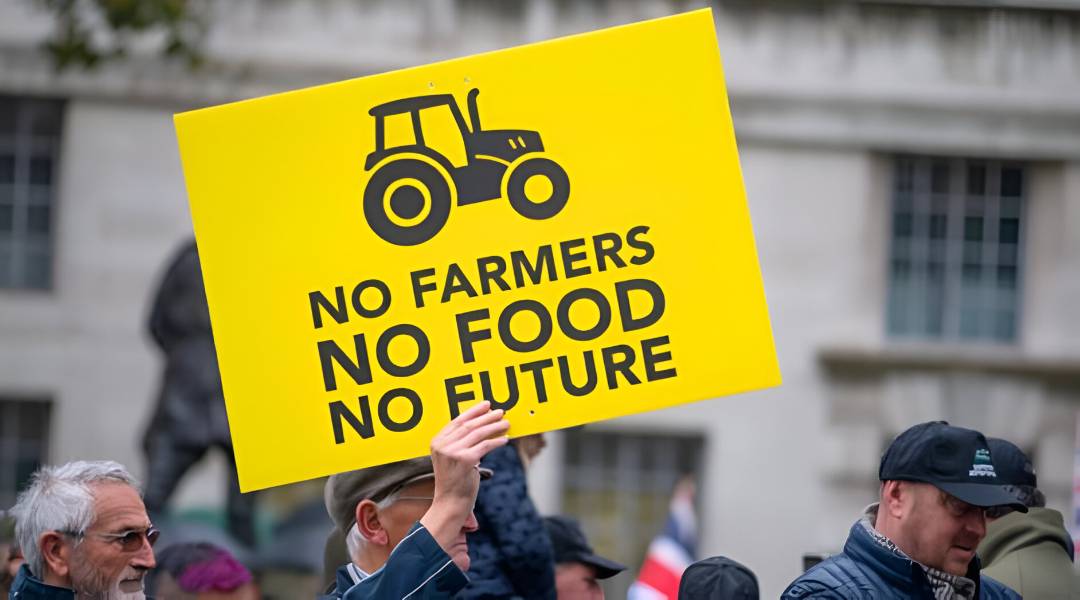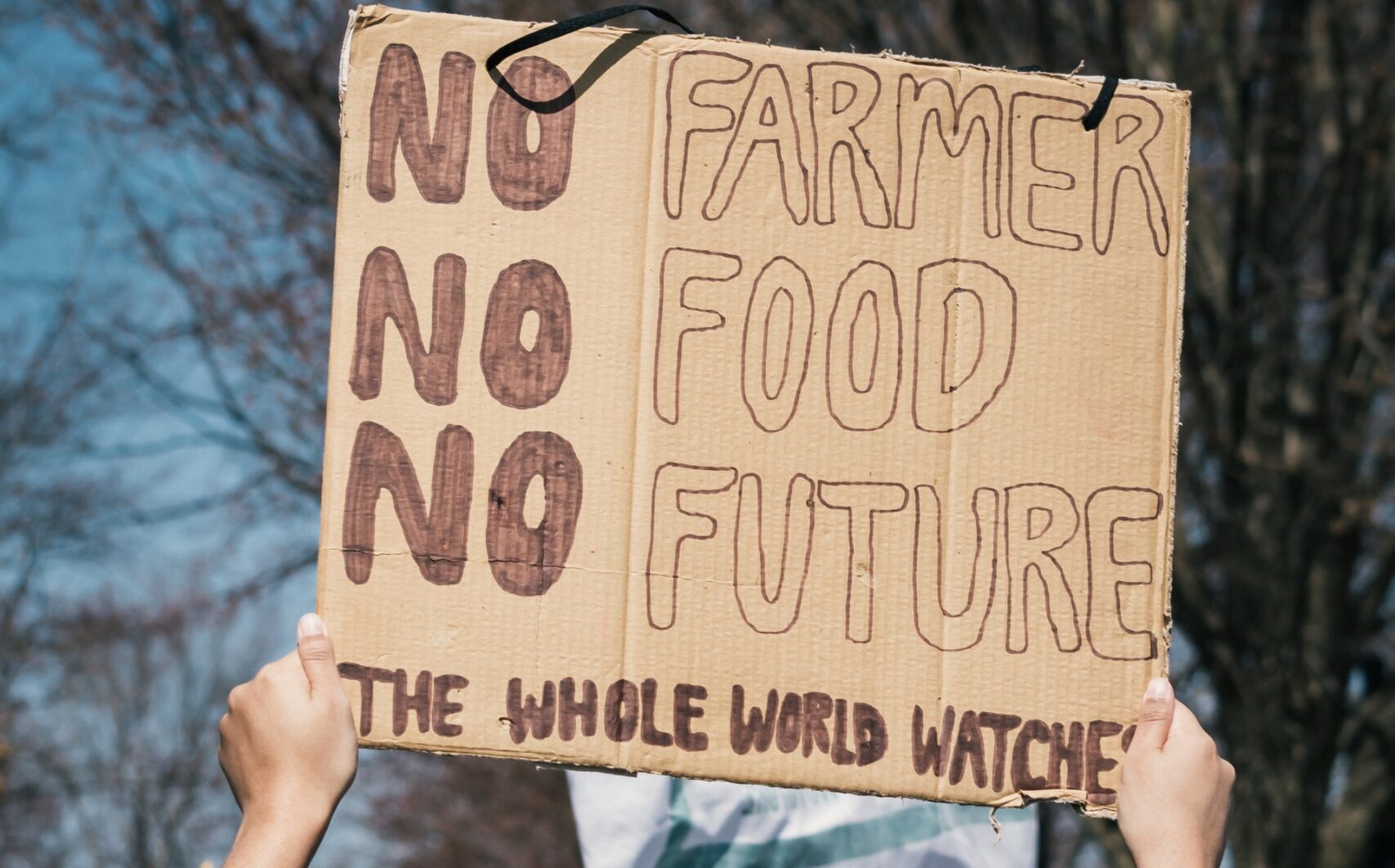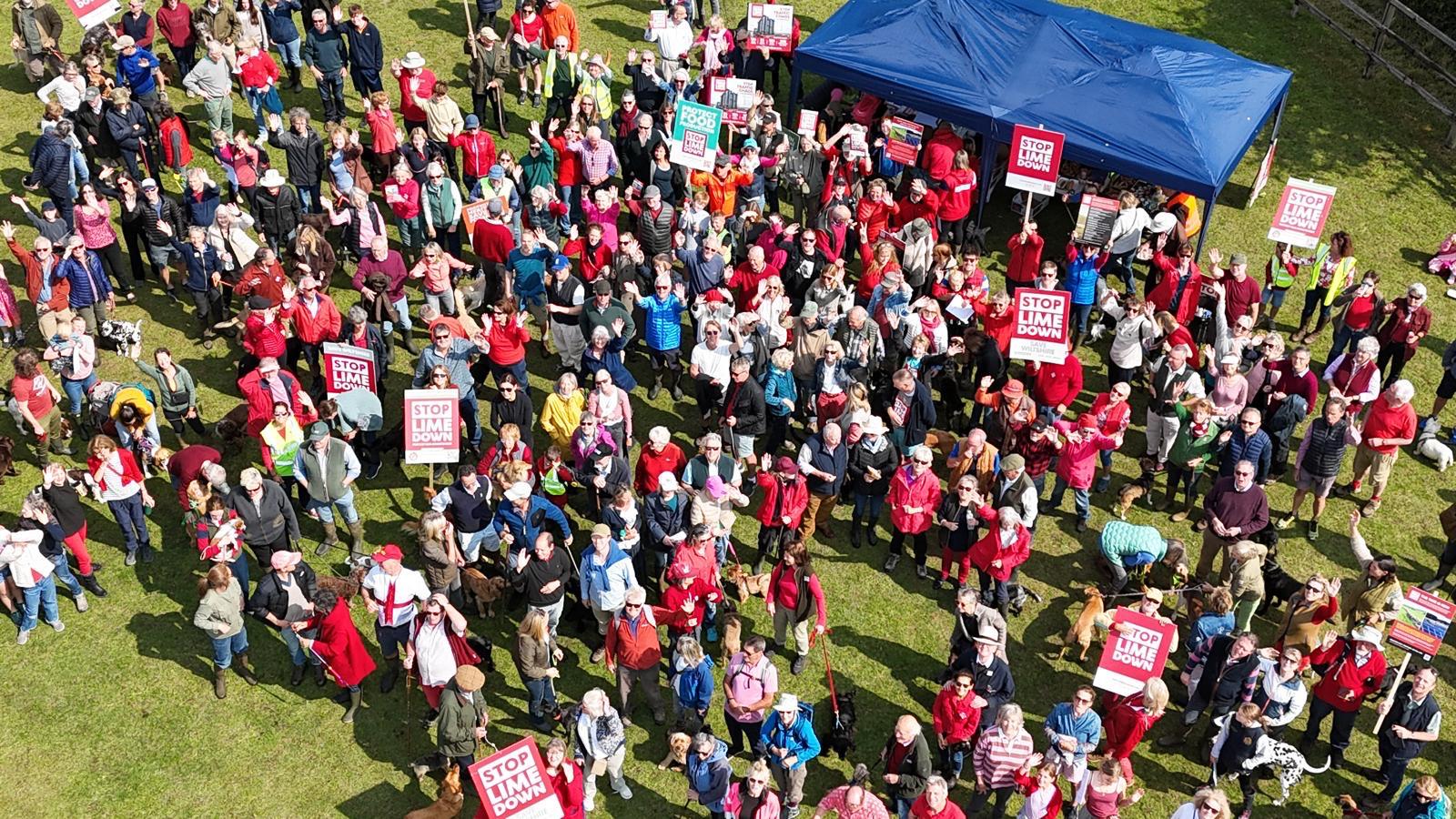Inspector Pig says #JustAsk!
Supporting factory farming is a crime, and you might get caught as inspector Pig is on the case! #JustAsk if the pork is from a local, high welfare farm and save yourself the trouble. Please watch, like and share this wacky video to help this message reach a wider audience.
Don’t fall for greenwash
In their constant search for control, growth and profits, multinational corporations are corrupting words like regenerative and organic agriculture as greenwash to hide the damage caused by their industrial production systems. An example is this one minute video by Sustainable Procurement, promoting the company, Native, which produces sugar cane in Brazil. Although they use all the right slogans like sustainable, circular economy, regenerative and organic, the pictures of giant supermarkets, massive machines and monoculture fields, show that they are part of the corporate narrative of industrial food and farming. These economies of scale depend on chemicals, GMOs, and other damaging tools of industrial agriculture to outcompete traditional small scale family farms.
The Organic Consumers Association warns of the bogus claims of many corporate giants on their tens of millions of acres of monocultures and urges us to look beyond the labels to find the food that is healthy for us and the planet;
‘In the past few years, Big Food and Big Ag corporations such as Bayer/Monsanto, Cargill, Walmart, General Mills, Danone, Unilever, and others have jumped on the bandwagon and publicly presented themselves as leaders in the regenerative agriculture movement. But something smells fishy. For one, these companies are completely leaving out organic practices in their definition of regenerative agriculture. As long as a farm uses certain conservation practices such as reduced tillage or cover crops, these companies seem to think that toxic pesticides, synthetic fertilizers, biotechnology, and corporate control of farms and farmers are all A-okay.’
‘As regenerative agriculture has become more prominent on the world stage, questionable initiatives cloaked in legitimacy through association with organizations such as the Food and Agriculture Organization of the United Nations (FAO) have expanded. For example, the Global Alliance for Climate Smart Agriculture (GACSA), hosted by the FAO, purports to champion regenerative agriculture and states the following goals:
- Sustainable and equitable increases in agricultural productivity and incomes;
- Greater resilience of food systems and farming livelihoods;
- Reduction and/or removal of greenhouse gas emissions associated with agriculture (including the relationship between agriculture and ecosystems), where possible.
Those all sound pretty good, right? Not so fast. When you take a deeper look into the list of GACSA members, you’ll be worried. Among the members include:
- Syngenta (pesticide and GMO giant)
- Yara International (world’s largest synthetic fertilizer manufacturer)
- Indigo Ag (provider of “plant microbiome agricultural services” and artificial intelligence; the president of their board is Moderna CEO in Big Pharma)
- Global Biotechnology Transfer Foundation
- International Fertilizer Industry Association
- Danone (food multinational)
- Kellogg’s (food multinational)
Can these players really be trusted to have the best interest of human communities, health, soil, water, air, animals, wildlife, and climate at heart? It sure doesn’t seem so’.
For another example, Cargill has previously been named “Worst Company in the World” by the environmental organization Mighty Earth due to its “unscrupulous business practices, environmental destruction, and repeated insistence on standing in the way of global progress on sustainability.” Does Cargill’s sudden interest in regenerative agriculture demonstrate a change of heart? Or—more likely—are there ulterior motives (and opportunities for profit) at play?
‘Fortunately, there are many proactive efforts towards true Regeneration such as the Regenerative Organic Certification.
We have the power to uphold the narrative that true Regeneration is organic, holistic, locally-controlled, decentralized, small-scale, and democratic. True Regeneration is based on agroecology, relocalization of food systems, and respect of Indigenous knowledge. It nourishes health, culture, local economy, and community.’
When there are so few organic farms in the UK and so much greenwash in the industrial market, Riverford Organic Farmers newsletter suggests that change must come by conscientious and informed consumer choices.
‘There is always a risk of greenwash. But the almost 3,000 self-defining regenerative farmers who met at Groundswell recently to discuss how to restore wildlife, reduce chemicals and nurture soil proves the level of interest. And when organic farming still only accounts for less than three percent of farmland in the UK, there’s clearly a need to transform the majority of agriculture. The problem is when bigger multinational brands get involved and use the term for marketing purposes, as is starting to happen in the US. You can counter that by trying to meet the farmers in your area, via box schemes, local butchers or farm shops, or on social media.’
Corporate Seed theft
The same greenwashing multinationals have privatized seeds and plant varieties by codifying and granting intellectual property rights to plant “breeders,” or those who develop new plant varieties. This allows commercial breeders and corporations to claim intellectual property rights over seeds that were developed through the age-old, collective work of indigenous communities, peasants and farmers. The Alliance for Global Justice explains;
Civil society organizations and smallholder farmers around the world are boycotting the upcoming UN Food Systems Summit, which has privileged technocratic solutions and is poised to further consolidate corporate control over the food system–and over seeds. Already, four large multinational corporations–including Corteva (formerly DowDuPont), Bayer (formerly Bayer-Monsanto), and ChemChina (which owns Syngenta)–control over 70 percent of the world’s seeds. These monopolies not only pose serious and demonstrated threats to seed biodiversity, but also to food sovereignty.
Image showing the network of smaller seed companies owned by a handful of large seed and chemical companies.
There is perhaps no force that has been more damaging to farmers, peasants, and indigenous communities’ traditional seed systems than the 1991 International Union for the Protection of New Varieties of Plants (UPOV) convention–yet it is not widely understood by food sovereignty activists and organizations. Recognizing the need to understand and resist UPOV’s power, GRAIN recently published a report detailing the convention’s functions and implications, and is calling for a week of action in December 2021, to say NO TO UPOV!
News round-up
UK
? Surplus pigs may be culled because of staff shortages at abattoirs and meat-processing plants.
If government doesn’t take action, perfectly healthy pigs will end up being destroyed and wasted and more pork will have to be imported from the EU,” ‘Davies said the situation was so critical that pig farmers were struggling to find space for the surplus animals.’
? Abattoirs, butchers and meat processors are set to employ prisoners and ex-inmates to help plug labour shortages. The reason why there is a lack of UK workers in the large scale meat industry is because it is a monotonous, badly paid and dangerous job. Surely prisoners should be shown how the world is an inspiring and happy place for them to join, not another hell hole. It is time to relocalise our farming back into the hands of small scale family farmers, abattoirs and butchers by paying them a fair price for their vital skills.
? A new survey by the Rare Breeds Survival Trust (RBST) highlights a lack of suitable abattoirs as a ‘key barrier’ for native breeds.
‘42% of respondents warned that ‘lack of suitable abattoir’ was one of their top three greatest barriers to growing their rare breed business.’
‘A 2018 analysis by the Sustainable Food Trust found that the number of small abattoirs in the UK had reduced by a third over the previous decade.’
?? Landworkers Alliance (LWA) responds to the National Food Strategy (NFS):
‘The LWA supports the NFS’s call for local authorities to create their own food strategies and a £500 million ‘Challenge Fund’ for innovation to ‘boost locally-led initiatives to improve health and diet’. However, “while grassroots organisations and the voluntary sector are keen to mobilise and create thriving local food systems, they need central government leadership to address the power imbalance in a food system dominated by supermarket competition and public funding to invest in the necessary local infrastructure including abattoirs and processing facilities”’.
The Landworkers Alliance’s full report said the National Food Strategy does not include the benefits of sustainably managed grass fed livestock
‘The conclusion reached in the NFS that the consumption of white meat is a more sustainable alternative to red meat fails to acknowledge the nuances of the debate.’
As described by The Soil Association, chicken production in the UK is having a devastating impact largely through the mass production of soya feed that is driving deforestation, damaging land-use change and destroying habitats in South America.
?? NFU Mutual unveils social media support for small farms
‘A new scheme by NFU Mutual provides small farming businesses with free access to social media expertise to boost their online following.’
?? Government response to ‘End the Cage Age’ petition of 10,000 signatures, led by Dragons’ Den star and Compassion in World Farming Patron, Deborah Meaden, falls short.
‘There is no mention of a phase out period for caged systems. We believe this should be in line with the recently announced EU target of 2027, to encourage a focused effort by industry to hit the deadline.’
‘CRISPR is a favourite DNA-editing tool which can be used to insert genes in precise locations in the genome. However, an experiment on mice found that the desired, precise genetic transformation was accompanied by undesirable changes in the epigenome. These changes were passed down through at least 10 generations.’
? A climate solution is hidden in the hedgerows, Experts recommend Britain should plant 40% more of these valuable barriers by 2050
‘Hedgerows help slow down the runoff of water, guarding against flooding and soil erosion, and act as barriers to help prevent pesticide and fertiliser pollution getting into water supplies. Studies show they can improve the quality of air by helping trap air pollution.’
‘But more than half of hedgerows have been lost since 1945, and much of the remainder are degraded, relicts of their former glory and often poorly managed.’
Rest of the world
African social movements says The African Union (AU) should suspend undemocratic and pro-industry seed and GMO guidelines and processes
‘Processes like seed and biotechnology harmonisation have been decided behind closed doors between industry and the AU, with no participation by the majority of small-scale farmers. This way of operating is a betrayal of the democratic rights of the African people and we will fight tooth and nail against it.’
? GM Bt maize hits predator of armyworm pest
‘A newly published open access study shows another mechanism through which Bt insecticidal maize crops may be failing. The Bt toxins (“Cry proteins”) in Bt maize ingested by the fall armyworm pest are transferred to a natural enemy of the armyworm, the predatory stink bug Podisus nigrispinus (Dallas) – where they cause harmful changes in the predator insect’s midgut cells. The authors believe that these changes could negatively impact the predator insects’ fitness.’
?? UN criticised over statement on overuse of antibiotics in farming.
‘Animal health experts and UN leaders have called for a significant reduction in antimicrobial drug usage in food animals, which is already causing a “silent pandemic”. But critics say the statement is “a real missed opportunity”, pointing to its failure to set reduction targets or even call for a ban on the use of antibiotics for animal growth promotion.’
?? French agriculture minister condemns ‘cruel practices’ after shocking video from intensive pig farm
?? ? Farmers fear for their land as hazelnuts spread across Italy’s hills under a drive by Ferrero, the Italian company that makes Nutella. The benefits of local food do not include the same industrial monoculture system moving to any local doorstep.
‘Ferrero’s shift has stoked environmental concerns and divided local communities into those who welcome the chance to maximise their incomes versus those who believe the resultant monoculture will create an environmental dead-end.’
?? Reston virus “should be seen to have zoonotic potential” so surely another good reason to stop importing food we can produce here.
‘The research team advised, “Although there seems to be no immediate threat of Reston virus introduction into other countries, the Reston virus situation in pigs in the Philippines and other South East Asian countries should be closely monitored. Regulations for import/export of live pigs and pork products should consider Reston virus as a potential transboundary animal disease.”’
? Meat Monopoly: Biden wants to break up the powerful US beef industry
‘Four super-powered meatpackers control more than 80% of the US beef market, an extraordinary concentration of market power that the Biden administration is not happy about.’
…“farmers’ share of the price of beef sales has dropped by more than a quarter – from 51.5% to 37.3% – while the price of beef has risen”’
‘…many believe that reducing the consolidated power of these big players is critical, not only to keep consumer prices low and ranchers in business, but to protect US food security. The global pandemic is not the only event to reveal just how fragile the current consolidated system is – the recent cyber-attack on JBS, which cost the company an $11m (£8m) ransom, halted one-fifth of the US’s meat processing capacity for days, with the effects felt up and down the supply chain.
“The state of play for the last 40 years,” Frerick says of political efforts to break up the big meatpackers, “has been empty words. This is a question of political courage.”’
Please donate
Forgive me for pointing out that, while we receive some one-off donations, I am funding Farms Not Factories myself, and if we are to continue to fight the cruel, antibiotic-led factory farm system, we will need some regular donations from like-minded people. Please consider a monthly subscription of £2/month and help us support a network of smaller scale, humane and healthy UK pig farms, local abattoirs and butchers.
“Our message is simple, we want to help bring an end to this dangerous, inhumane system. Vote for real farming over factory farming.”
– Tracy Worcester, Director
Contents
Share This Article
Related ArticlesView All
Protectionism vs So-Called Free Trade
The purpose of our newsletter is to give you important information that is censored in the mainstream media. “The way… Read More
Find A Farmer
The purpose of our newsletter is to give you important information that is censored in the mainstream media. “The way… Read More
Zionist Money Rules
The purpose of our newsletter is to give you important information that is censored in the mainstream media. “The way… Read More
The Price of Progress
The purpose of my newsletter is to give you important information that is censored in the mainstream media. “The way… Read More
Silencing Dissent Through Fear
The purpose of my newsletter is to give you important information that is censored in the mainstream media. If you… Read More
Ukraine and Israel – A United Force
The purpose of my newsletter is to give you important information that is censored in the mainstream media. If you… Read More






